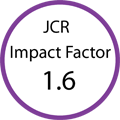Depression, Suicide Ideation, and Thyroid Tumors Among Ukrainian Adolescents Exposed as Children to Chernobyl Radiation
Abstract
Background: The Chernobyl Childhood Illness Program (CCIP) was a humanitarian assistance effort funded by the United States Congress. Its purpose was to assist the Ukrainian Government to identify and treat adolescents who developed mental and physical problems following their exposure as young children to Chernobyl radiation. Thirteen years after the Chernobyl nuclear plant accident in 1986, the CCIP examined 116,655 Ukrainian adolescents for thyroid diseases. Of these, 115,191 were also screened for depression, suicide ideation, and psychological problems. The adolescents lived in five of Ukraine’s seven most Chernobyl radiation contaminated provinces. They were up to 6 years of age or in utero when exposed to nuclear fallout, or were born up to 45 months after Chernobyl.
Methods: Ukrainian endocrinologist and ultrasonographers used physical examination and ultrasonography of the neck to evaluate the adolescents for thyroid tumors. The adolescents were then screened for depression by the Children’s Depression Inventory (CDI). After this, Ukrainian psychologists conducted individual psychological interviews to corroborate the adolescents’ CDI responses.
Results: Papillary thyroid carcinoma was diagnosed in eight adolescents, a high prevalence rate similar to that reported by other studies from the Soviet Union. Screening identified thyroid nodules in 1,967 adolescents (1.7%). Depression was diagnosed in 15,399 adolescents (13.2%), suicide ideation in 813 (5.3%), and attempted suicide in 354 (2.3%). Underlying components of the participants’ depression were negative mood, interpersonal difficulties, negative self-esteem, ineffectiveness, and anhedonia. Depression was greater in females (77%). Those with thyroid and psychological problems were referred for treatment.
Conclusions: The adolescents screened by CCIP represent the largest Ukrainian cohort exposed to Chernobyl radiation as children who were evaluated for both thyroid tumors and depression. The group had an increased prevalence of thyroid cancer, thyroid tumors, depression, and suicide ideation. CCIP demonstrated that psychological problems among Chernobyl exposed adolescents began earlier in life than previously reported. They also experienced socioeconomic problems from their relocation from radiation-affected areas and from the Soviet’s inadequate responses to their health needs. CCIP’s findings underscore the requirement that governments prepare plans to deal promptly with the diagnosis and treatment of nuclear accident victims’ medical and psychological problems.
J Clin Med Res. 2015;7(5):332-338
doi: http://dx.doi.org/10.14740/jocmr2018w




